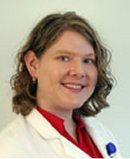|
Plenary
Lecture
The Role of Spirituality on Pain Perception and
Tolerance

Assistant Professor,
Dr. Amy
Wachholtz
University of Massachusetts Medical School
USA
E-mail:
Amy.Wachholtz@umassmemorial.org
Abstract: Chronic pain is a
severe, often intractable,
disorder that can severely impede
quality of life. Medications for
pain management can be useful, but
often cause unpleasant side
effects. This may leave patients
seeking out alternative pain
control resources, including those
that include their spiritual
beliefs and practices. Research
has shown the multi-dimensional
pain experience can be affected by
physical, psychological, and
spiritual factors. Many chronic
pain patients use
religious/spiritual forms of
coping, such as prayer and seeking
spiritual support, to cope with
their pain. The primary objectives
of this presentation is to review
the current research on 1)
potential psycho-physiological
pathways linking spirituality and
health, with a particular focus on
chronic pain, 2) adaptive and
maladaptive forms of
religious/spiritual coping
mechanisms, 3) religious/spiritual
coping strategies frequently used
by pain patients, and 4)
empirically supported tools to
assess adaptive and maladaptive
forms of religious/spiritual
coping in the context of chronic
pain. The conclusion of this talk
encourages providers to assess how
religious/spiritual factors may be
positively or negatively impacting
their patient's experience with
chronic pain.
Brief Biography of the Speaker:
Dr. Amy Wachholtz is an Assistant
Professor of Psychiatry at the
University of Massachusetts
Medical School, and the Health
Psychologist on the Psychosomatic
Medicine Consult Service at UMass
Memorial Medical Center. She is
also a clinical supervisor in the
UMass Medical School/WSH
Psychology Internship program. She
is a licensed clinical
psychologist in North Carolina and
Massachusetts. Dr. Wachholtz
graduated Cum Laude with a Master
of Divinity degree from Boston
University where she specialized
in Bioethics. She the continued
her education to earn a Masters
and PhD in Clinical Psychology
from Bowling Green State
University where she had a dual
specialty in Behavioral Medicine
and Psychology of Religion. She
completed her internship and
fellowship at Duke University
Medical Center where she focused
on psycho-social treatment of
medical illness, the promotion of
wellness activities prevent
illness and injury, and the use of
the wellness model in recovery to
prevent long term disability after
an acute illness and injury. She
has become an internationally
recognized expert in the areas of
pain and spirituality. Her
clinical and research interests
focus on the
bio-psycho-social-spiritual model
of health and wellness, chronic
pain disorders, the complexities
of treating of chronic or
recurring pain, and treating
disorders that frequently co-occur
with pain, such as opioid mis-use
and addiction.
|
